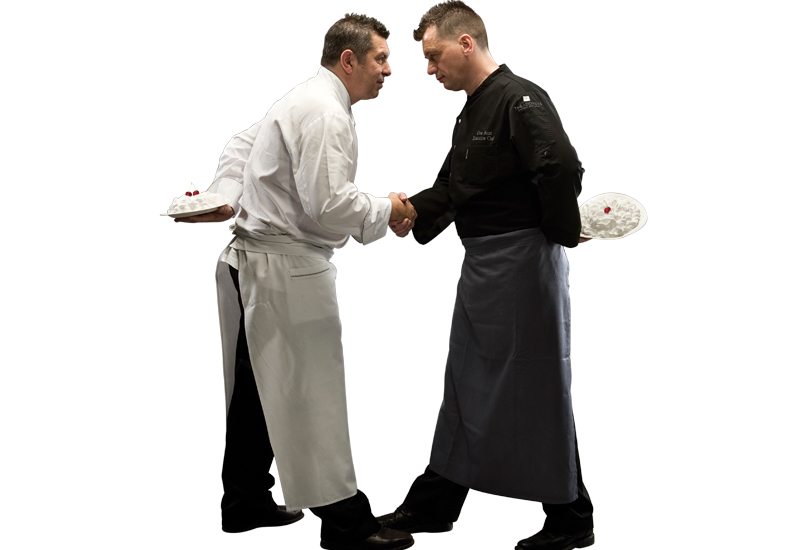Chefs have a reputation as a temperamental lot, so it’s not surprising that many think of culinary competitions as events rife with arguments, pan-throwing and red-faced men shouting.
But, as last month’s Salon Culinaire proved, this could not be further from the truth.
Competitions for the F&B profession are vital to encouraging new talent, fostering innovation and building bonds within the industry, as Royce Peter Rodrigues, first commis in the pastry kitchen at Fairmont Dubai, explains.
“Culinary competitions encourage new chefs and let them see what else is going on out there; it helps when you have something to aspire to and it’s good to be able to gauge yourself against other chefs in the industry, as well as learn from them,” says Rodrigues, who competed in Salon Culinaire 2009’s three-tier wedding cake category.
According to Al Bustan Rotana executive chef Christophe Prudhomme, there is also an element of wanting to see how you measure up to others.
“[Competitors] want to compare themselves, to prove that they are good and can compete with other chefs. When you see them preparing in a class, they may have their faces turned to what they are doing but they are actually looking around at the competition,’ he asserts.

Advertisement
The Address Downtown Burj Dubai executive chef Uwe Faust adds: “It’s a good vehicle for chefs to get out of their kitchen and update themselves on the new trends in the industry, while the interaction with other industry professionals also helps them increase their knowledge.”
But according to Geoff Haviland, recently-appointed Southern Sun corporate executive and development chef, professional cooking competitions are about much more than the obvious educational and social advantages.
“They give the young guys an outlet to demonstrate their passion and I think that’s great because usually in the work place you’re working to menus, you have a set list, you don’t often have a chance to express yourself through the food. Competitions give the younger chefs a chance to experiment; it’s all about them and instilling in them that passion so they can progress,” he explains.
Haviland adds that such gatherings provide an opportunity for young chefs to discuss the industry with their peers and keep abreast of current trends and shared challenges.
Talent show
Professionals agree that competitions such as the Gulfood Salon Culinaire play a vital role in fostering new talent — but showcasing this talent is not the sole responsibility of the competitor, as Fairmont’s Rodrigues explains.
“Hotels will often encourage their chefs to take part and the senior chefs will encourage the more junior ones, which is extremely helpful as they have obviously had experience of these kinds of competitions and can advise us on the general procedure and what we should aim for,” he says.
“We have several chefs from the pastry section competing at Salon Culinaire this year and there has been a great deal of support from our superiors.”
Al Bustan Rotana’s Prudhomme adds that although it is up to the hotel group or the senior chefs to offer support and broad guidance, ultimately the competitor “still has the pressure of making the piece”.
“It is hard work and can be stressful, but it teaches them to think outside the box, be creative and get out of the daily routine,” he says.
The Address’ Faust agrees, pointing out that ”using their own imagination helps young chefs to create new culinary delights and keeps them updated on new trends in the industry”.
Competition issues
Of course, when so many people are involved — and when so much is at stake — there are inevitably certain challenges that will arise.









 Search our database of more than 2,700 industry companies
Search our database of more than 2,700 industry companies









